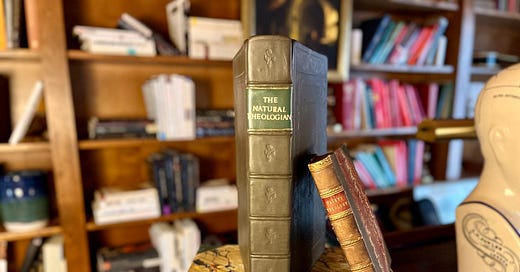INTERVIEW: An O. G. Rose Conversation with Joel Carini
A discussion of natural theology, the concept of a donkey, and Evangelical learned helplessness.
I’m pleased to present this recent interview by Daniel Garner of O. G. Rose (his joint pen name with his wife Michelle). Daniel is an independent philosopher, the author of Belonging Again, and a fellow member of the Other Life community. With his contagious enthusiasm, he has been a great encouragement to me in the last year or so of writing.
I am honored by his careful reading of and engagement with my book The Natural Theologian: Essays on Nature and the Christian Life. His care and interest show through in the interview as we explore connections between the theological and philosophical elements of the volume. We also break new ground with a discussion of “Evangelical learned helplessness,” the consequence of a pseudo-Protestant theology that undermines the motivation for Christian action in the world.
Enjoy!







I had a wonderful time in this conversation, my friend; thank you for your time and for writing such a great book! It was a delight to read.
I hate to always be disagreeing with you, Dr. Carini, but I shall do so again. I am not an empiricist or an Aristotelian (Plato>>>Aristotle), and that is the nub of my disagreement. Pure experience does not exist, since the human mind comes into existence with certain innate ideas, and cannot interpret experience without them. The idea of causality cannot be derived from experience. Apart from our innate belief in the principle of sufficient reason, we would have no reason to believe that things have causes and thus no reason to seek out reasons. Someone who denies the principle of sufficient reason, and there are plenty of such people, is not sane, and cannot be reasoned with. You will find no common ground with him when attempting to reason about things of ultimate importance.
In addition, purely linguistic arguments without reference to experience actually do work in some cases, regardless of whether the ontological argument is successful. I am a mathematician in my last year of a PhD program, so the obvious example for me is Gödel's incompleteness theorem. This result tells us something about the real world. For instance, it tells me that a computer program capable of doing certain basic arithmetical reasoning cannot be used to prove its own reliability (I haven't done mathematical logic in two years, and it isn't my field, so if you want details, I can get them, but I would need to do a little review first). I have other objections (you misunderstand Lutheran political theology), but this is already overlong.